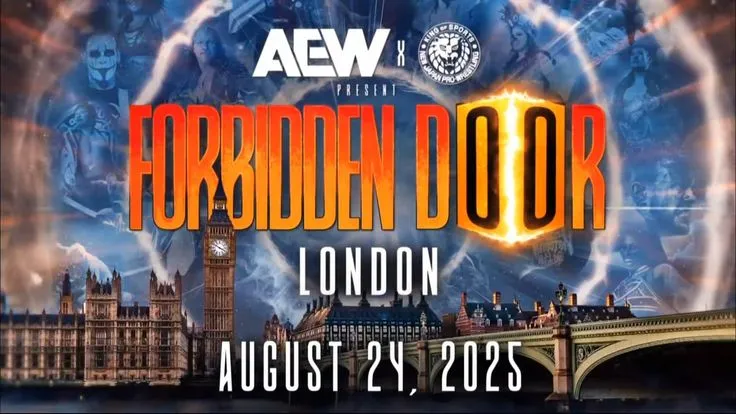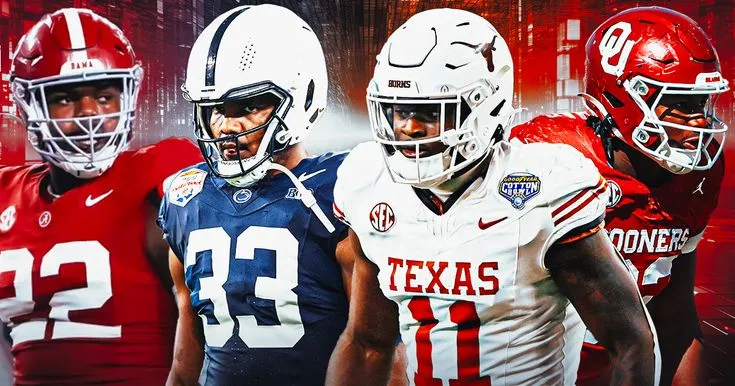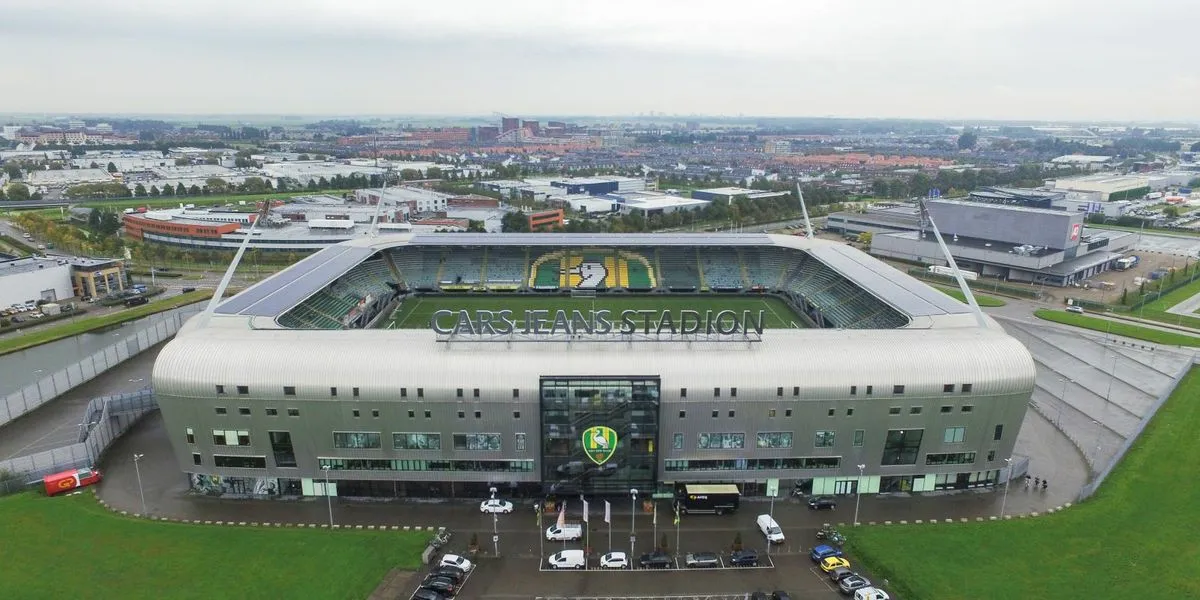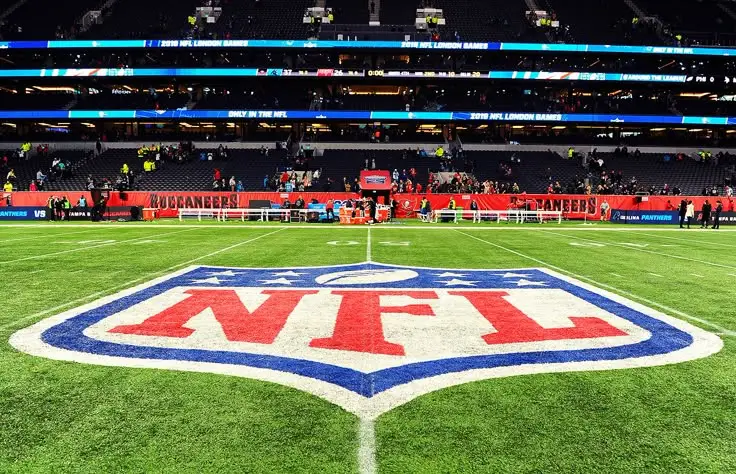NFL Game on TV
How Long is an NFL Game on TV? Picture this: you’re settling in for Sunday afternoon football, snacks ready, jersey on, and suddenly you realize you have no idea when this NFL game will actually end. Will you miss dinner plans? Can you squeeze in that second game? Understanding exactly how long an NFL game runs on TV is crucial for any football fan planning their day around America’s favorite sport.
Whether you’re a seasoned football enthusiast or someone just getting into the game, knowing the broadcast duration helps you plan your Sunday (or Monday, or Thursday) perfectly. The reality is that while the official game time might seem straightforward, the actual time you’ll spend watching football on TV today involves much more than just four quarters of play.
In this comprehensive guide, we’ll break down everything you need to know about NFL game durations, from regulation time to overtime possibilities, commercial breaks to halftime shows, and how different factors can dramatically affect your viewing experience.
Understanding Basic NFL Game Structure
The Official Game Clock
An NFL game consists of four quarters, each lasting exactly 15 minutes of game time. This gives us a total of 60 minutes of official playing time. However, anyone who’s watched football on TV today knows that 60 minutes of game time translates to much longer in real time.
The game clock operates differently from a standard stopwatch. It stops for various reasons throughout the game:
- When a player goes out of bounds
- During incomplete passes
- After timeouts are called
- During penalties
- When players are injured
- During the two-minute warning in each half
Quarter Breakdown and Timing
Each quarter follows the same basic structure, but the timing can vary significantly:
First Quarter (15 minutes game time)
- Typically takes 30-40 minutes in real time
- Includes opening ceremonies and player introductions
- Teams are often still settling into their rhythm
Second Quarter (15 minutes game time)
- Usually 35-45 minutes in real time
- Ends with the two-minute warning
- Often features more strategic play calling
Halftime Break
- Standard halftime: 12 minutes
- Extended for special events or primetime games: 15-20 minutes
- Super Bowl halftime: 30+ minutes
Third Quarter (15 minutes game time)
- Generally 30-35 minutes in real time
- Teams return refreshed with new strategies
- Often sees momentum shifts
Fourth Quarter (15 minutes game time)
- Can extend 40-60 minutes in real time
- Features the crucial two-minute warning
- May include overtime if the score is tied
Real-Time Duration: What to Actually Expect
Standard Regular Season Games
When you tune in to watch an NFL game during the regular season, you should expect the broadcast to last approximately 3 hours and 15 minutes. This timing has remained remarkably consistent over the years, despite various rule changes and broadcast innovations.
Here’s how that time typically breaks down:
- Pre-game coverage: 15-30 minutes
- Actual game play: 180-210 minutes (3-3.5 hours)
- Post-game wrap-up: 10-15 minutes
The game on TV experience includes significantly more than just the action on the field. Television broadcasts are designed to maximize viewer engagement and advertising revenue, which means strategic placement of commercial breaks throughout the game.
Looking for Premium Channels, Sports, and 4K Streaming?
Don’t miss out on these top-rated IPTV services – all at unbeatable prices!
🔥 TiviBridge – Ideal for sports lovers & international content
🎬 Iptvbridge – Perfect for live TV, movies & entertainment
💰 TiviPlanet – Best value for budget-conscious streamers
🚀 Start Your IPTV Business Today!
Get instant access to a powerful Reseller IPTV Panel with competitive pricing, advanced features, and 24/7 support. Join TiviBridge and grow your own IPTV empire with ease!
👉 Start your FREE trial now and elevate your viewing experience with seamless, high-quality streaming!
Factors That Extend Game Duration
Several factors can push your NFL game viewing experience well beyond the standard 3+ hours:
Overtime Games When teams are tied at the end of regulation, overtime rules come into play. Regular season overtime consists of a single 15-minute period, but the game can end earlier if a team scores a touchdown or if the defense scores. Playoff overtime continues until there’s a winner, potentially adding significant time to your viewing experience.
Weather Delays Outdoor stadiums face weather-related delays that can extend broadcasts dramatically. Lightning delays are particularly common and can add anywhere from 30 minutes to several hours to your viewing time.
Injury Timeouts While nobody wants to see players get hurt, injuries are unfortunately part of football. Serious injuries can result in extended delays as medical personnel attend to players, sometimes adding 15-30 minutes to the broadcast.
Replay Reviews The NFL’s replay system, while improving game accuracy, can significantly slow down the pace of play. Complex reviews can take 5-10 minutes each, and games with multiple controversial calls can see substantial delays.
High-Scoring Affairs Ironically, the most exciting high-scoring games often take longer to complete. More scoring drives mean more extra points, more kickoffs, and more opportunities for the clock to stop.
Commercial Breaks and Their Impact
The Business of Broadcasting
Television networks pay enormous sums for NFL broadcasting rights, and they recoup these investments through advertising revenue. The NFL has structured its rules to accommodate television timeouts, which significantly impact game duration.
Mandatory TV timeouts occur:
- After scoring plays (touchdowns, field goals, safeties)
- During the two-minute warnings in each half
- When teams call timeouts
- During injury timeouts
- After changes of possession
- At the end of quarters
Commercial break duration typically includes:
- 2-3 minutes for standard breaks
- 3-4 minutes for major breaks (quarter transitions)
- 4-5 minutes during halftime programming
- Extended breaks during primetime games
Impact on Viewing Experience
The average NFL game features approximately 20 commercial breaks, totaling about 60-75 minutes of advertising time. This means that roughly one-third of your football on TV today experience consists of commercials rather than actual game action.
However, these breaks serve multiple purposes beyond revenue generation:
- Allow coaches to strategize and make adjustments
- Give players necessary rest periods
- Provide broadcasters time for analysis and replay review
- Enable viewers to take breaks without missing action
Special Game Scenarios and Extended Duration
Playoff Games: When Stakes Are Higher
Playoff games typically run longer than regular season contests for several reasons:
Extended Overtime Rules Unlike regular season games that can end in ties, playoff games must have a winner. This means overtime continues until one team scores, potentially adding significant time to your viewing experience.
Increased Ceremony and Pageantry Playoff games feature additional pre-game ceremonies, trophy presentations, and extended post-game coverage that can add 30-60 minutes to the total broadcast time.
Higher Intensity and Strategic Play Teams tend to use more timeouts and take more time between plays during crucial playoff moments, naturally extending game duration.
Monday Night Football and Primetime Differences
Primetime NFL games often run longer than their Sunday afternoon counterparts:
Extended Pre-Game Coverage Monday Night Football and Sunday Night Football feature elaborate pre-game shows that can extend total viewing time by 30-45 minutes.
Enhanced Production Values Primetime games often include more detailed analysis, additional camera angles, and extended halftime shows that add to overall duration.
Special Segments and Features Networks use primetime slots to showcase special features, player profiles, and extended analysis that wouldn’t fit into standard Sunday afternoon coverage.
Thursday Night Football Considerations
Thursday Night Football presents unique timing challenges:
Shorter Preparation Time Teams have less time to prepare, potentially leading to more conservative play-calling and longer drives.
Primetime Production Like other primetime games, Thursday night contests feature extended coverage and analysis.
Streaming Considerations With games now streaming on various platforms, broadcast timing may vary slightly from traditional television coverage.
International Games and Special Events
London and International Series
When the NFL takes games overseas, several factors can affect broadcast duration:
Time Zone Considerations Games played in London typically start earlier to accommodate both international and domestic audiences, but total duration remains consistent.
Special Ceremonies International games often feature additional pageantry and cultural elements that can extend pre-game and halftime periods.
Travel and Logistics Factors Teams playing internationally may experience different energy levels that could affect game pace and duration.
Super Bowl: The Ultimate Extended Experience
The Super Bowl represents the extreme end of NFL game duration:
Extended Halftime Show Super Bowl halftime shows can last 30-45 minutes, more than doubling the standard halftime period.
Elaborate Pre-Game Ceremonies National anthem performances, military honors, and other ceremonies can add significant time to the broadcast.
Extended Post-Game Coverage Trophy presentations, interviews, and celebration coverage can continue for 45-60 minutes after the game ends.
Total Viewing Time A complete Super Bowl broadcast, including pre-game and post-game coverage, can easily exceed 6-7 hours.
Tips for Planning Your Viewing Experience
Time Management Strategies
For Regular Season Games:
- Block out 3.5-4 hours for complete viewing experience
- Plan meals around halftime (approximately 1.5-2 hours into broadcast)
- Consider DVR recording to skip commercials and control pacing
For Playoff Games:
- Allow additional 30-60 minutes beyond regular season expectations
- Be prepared for potential overtime extensions
- Plan accordingly for following games if watching multiple contests
For Primetime Games:
- Add 30-45 minutes to standard expectations for extended coverage
- Consider earlier dinner plans to accommodate later start times
- Factor in potential West Coast viewing differences
Maximizing Your Viewing Experience
Fantasy Football Considerations If you’re tracking fantasy players across multiple games, understanding game duration helps you plan which contests to watch live versus checking highlights later.
Social Viewing Plans When hosting or attending football on TV today gatherings, proper time planning ensures everyone can participate fully without scheduling conflicts.
Multi-Game Sundays Understanding standard NFL game duration helps you determine whether you can realistically watch multiple complete games or need to choose priorities.
Technology’s Impact on Game Duration
Replay Technology and Reviews
Modern replay systems have significantly impacted game flow:
Video Review Process
- Coaches’ challenges: 2-3 minutes per review
- Automatic reviews in final two minutes: 3-5 minutes each
- Scoring play reviews: 1-3 minutes
Technological Improvements Newer replay systems and communication technology have gradually reduced review times, but the overall impact on game duration remains significant.
Broadcasting Innovations
Enhanced Coverage Features
- Multiple camera angles and instant replays
- Statistical analysis and graphics
- Real-time player tracking and advanced metrics
Streaming Platform Differences Different platforms may offer varying commercial experiences, potentially affecting your total viewing time for football on TV today.
Comparing NFL to Other Sports
Duration Versus Other Major Sports
Understanding how NFL games compare to other major sports helps put the time commitment in perspective:
Baseball Games
- Average duration: 3 hours 10 minutes
- Can extend significantly with extra innings
- No game clock creates potential for extremely long contests
Basketball Games
- NBA games: approximately 2.5 hours
- College games: approximately 2 hours
- Faster pace with consistent clock management
Hockey Games
- NHL games: approximately 2.5-3 hours
- Overtime format varies by season (regular vs. playoff)
- Fewer commercial breaks than football
Soccer Matches
- 90 minutes plus stoppage time
- Total broadcast time: approximately 2 hours
- Minimal commercial interruption during play
What Makes NFL Unique
The NFL game structure creates a unique viewing experience:
- Strategic timeout usage adds drama and suspense
- Commercial breaks allow for social interaction and discussion
- Clock management becomes crucial game strategy
- Overtime rules create definitive outcomes in playoffs
Planning for Different Types of Games
Early Sunday Games (1:00 PM ET)
These games typically conclude by 4:15-4:30 PM ET, making them ideal for:
- West Coast viewers who prefer earlier start times
- Fans planning to watch multiple games
- Those with evening commitments or activities
Late Sunday Games (4:25 PM ET)
Concluding around 7:30-8:00 PM ET, these games work well for:
- East Coast viewers who want afternoon football
- Those planning Sunday evening activities
- Fans who want to cap off their weekend with football
Sunday Night Football (8:20 PM ET)
With extended coverage, these games often run until 11:30 PM-midnight ET:
- Perfect for dedicated football fans
- Challenging for early Monday morning schedules
- Enhanced production values justify longer time commitment
Monday Night Football (8:15 PM ET)
Similar duration to Sunday night, but with weekday considerations:
- Impacts Monday morning routines
- Often features compelling matchups worth the time investment
- May conflict with other Monday evening activities
Frequently Asked Questions
How long does a typical NFL game last on TV?
A standard NFL game broadcast lasts approximately 3 hours and 15 minutes. This includes pre-game coverage, the four quarters of play, halftime, commercial breaks, and brief post-game coverage. However, games can run longer due to overtime, weather delays, or extensive replay reviews.
Why do NFL games take so much longer than the 60 minutes of game time?
While there are only 60 minutes on the game clock, NFL games include numerous clock stoppages, commercial breaks, timeouts, halftime, and other delays. The game clock stops for incomplete passes, when players go out of bounds, during timeouts, penalties, and injury breaks. Additionally, television broadcasts include substantial commercial time to fund the expensive broadcasting rights.
What’s the longest an NFL game can last?
Theoretically, there’s no maximum limit for NFL game duration. The longest game in NFL history lasted over 7 hours due to multiple overtimes and delays. However, most games conclude within 4 hours even with overtime periods.
Do playoff games last longer than regular season games?
Yes, playoff games typically run 15-30 minutes longer than regular season contests. This is due to extended overtime rules (games cannot end in ties), additional ceremonies, more strategic play-calling, and enhanced broadcast coverage.
How much actual action occurs during an NFL game?
Studies have shown that an average NFL game contains approximately 11-15 minutes of actual action where the ball is in play. The remainder consists of time between plays, commercial breaks, timeouts, and other stoppages.
What factors can make a game run significantly longer?
Several factors can extend game on TV duration significantly: weather delays (especially lightning), overtime periods, multiple injury timeouts, extensive replay reviews, high-scoring games with frequent stoppages, and technical difficulties with broadcast equipment.
Are there differences between network broadcasts?
Different networks may have slightly varying approaches to commercial timing and coverage, but NFL broadcasting standards ensure relatively consistent duration across all networks. However, streaming platforms might offer different commercial experiences.
How does Super Bowl duration compare to regular games?
The Super Bowl broadcast typically lasts 4.5-5 hours due to extended halftime shows (30+ minutes), elaborate pre-game ceremonies, and comprehensive post-game coverage. The actual game portion follows standard timing, but everything else is significantly extended.
Conclusion: Mastering Your NFL Viewing Schedule
Understanding exactly how long an NFL game lasts on television transforms you from a casual viewer into a strategic fan who can plan the perfect football-watching experience. With regular season games averaging 3 hours and 15 minutes, you now have the knowledge to plan your Sundays, coordinate with friends and family, and make the most of your football on TV today experience.
The beauty of NFL football lies not just in the 60 minutes of game time, but in the entire theatrical experience that television brings to your living room. From the opening kickoff to the final whistle, every moment contributes to the drama, excitement, and community that makes professional football America’s most popular sport.
Remember that while the standard duration provides excellent planning guidance, remaining flexible for overtime thrillers, weather delays, and those unforgettable games that seem to suspend time itself will enhance your overall enjoyment. The best NFL games are often the ones that keep you glued to your seat long past your planned viewing time.
Whether you’re a fantasy football manager tracking multiple players, a dedicated fan following your favorite team, or someone new to the sport trying to understand the time commitment, this comprehensive guide equips you with everything needed to maximize your NFL viewing experience.
Ready to put this knowledge into action? Check your local listings for this week’s football on TV today, block out the appropriate time, gather your favorite snacks, and prepare for another incredible NFL experience. Don’t forget to share this guide with fellow football fans who are always asking, “When will this game actually end?” Your friends will thank you for helping them plan their perfect football Sunday!
What’s your experience with NFL game duration? Have you ever been surprised by how long a game lasted, or do you have strategies for managing your viewing time? Share your thoughts and tips in the comments below – your fellow football fans would love to hear from you!











